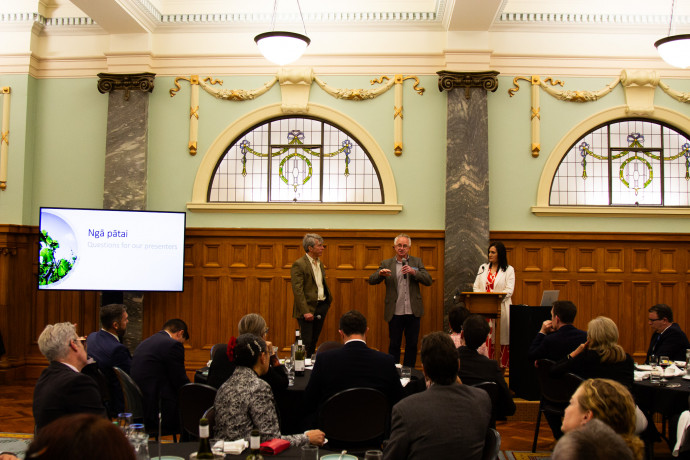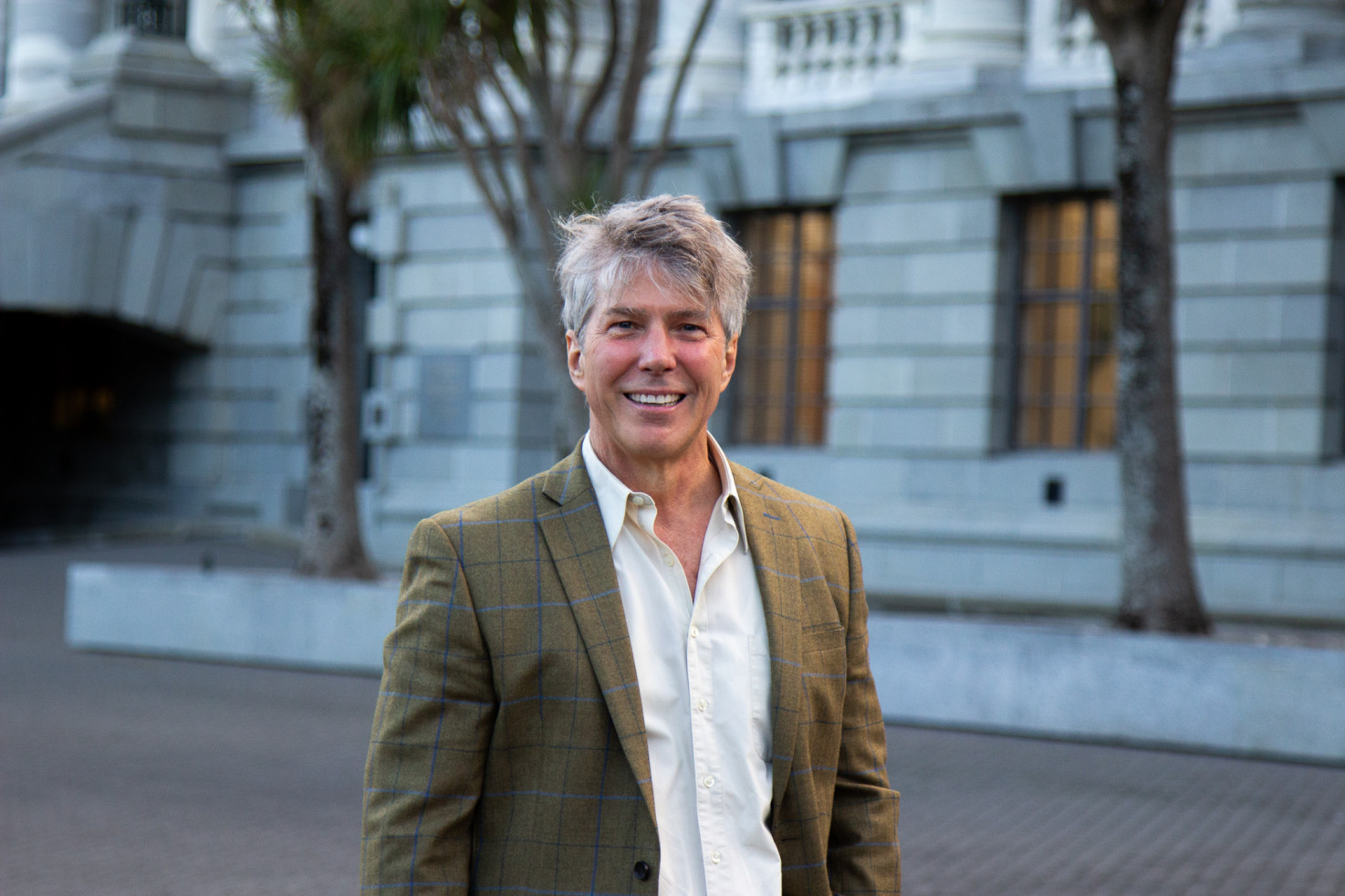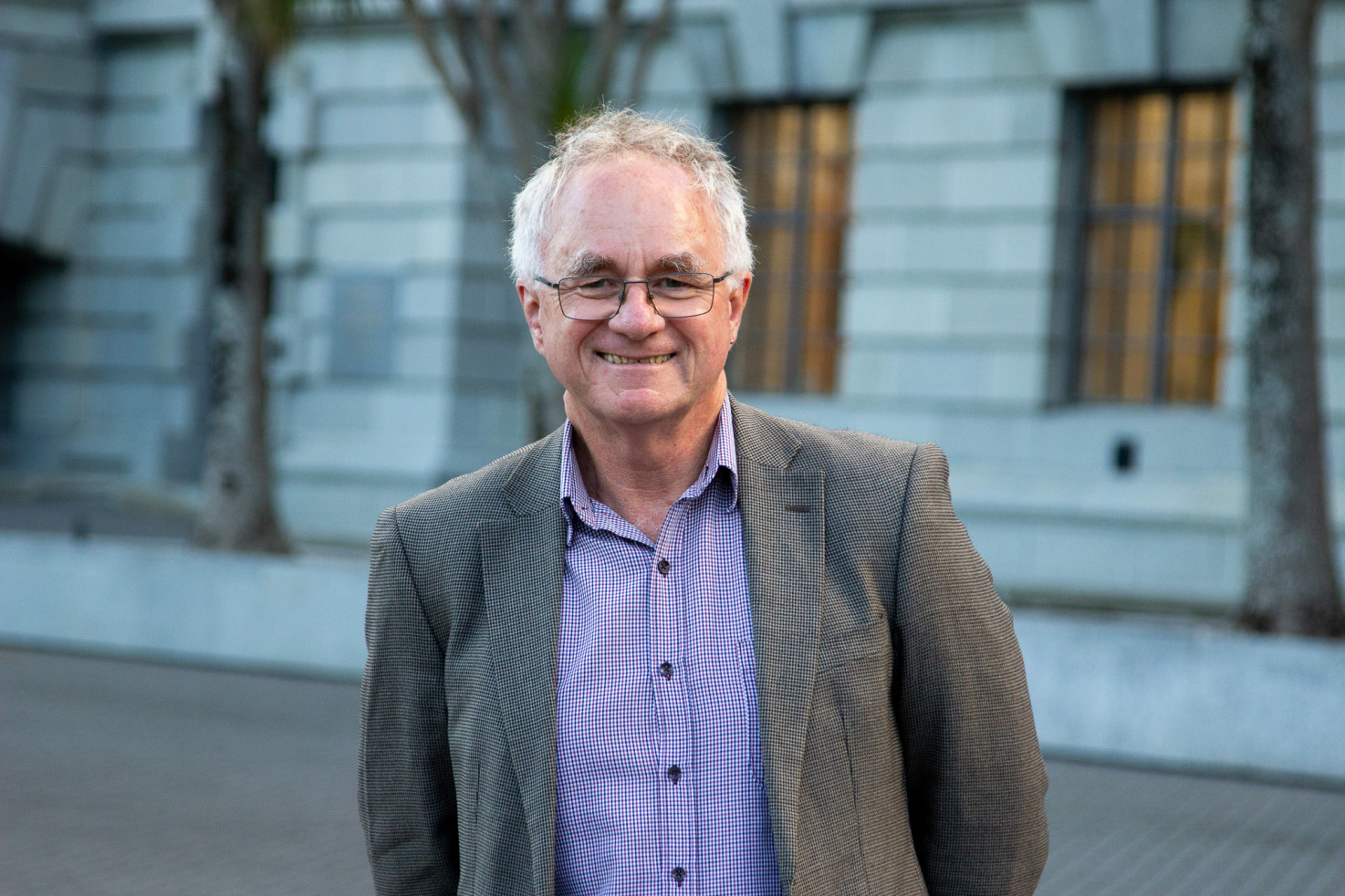Technology for Better Farming, Food, and Nutrition

The second event in our Speaker’s Science Forum series for 2024 was held on 9 Pāenga-whāwhā April at Parliament. Dr Scott Knowles discussed precision fermentation; and Professor Bruce MacDonald talked about automation and robotics in horticulture.
Precision fermentation in future food systems
Dr Scott Knowles, AgResearch

“Products derived from grazing animals drive New Zealand’s agrifood economy. In the near future, some of those products will sidestep agriculture and be sourced from the equivalent of ‘stainless steel cows’. This is the threat and opportunity of precision fermentation.
The technology uses microorganisms grown under controlled conditions to produce specific functional compounds. The microbes have been reprogrammed by genetic engineering techniques to be cell factories, typically by inserting a useful gene from another species. These might code for bovine dairy proteins such as casein or beta-lactalbumin, which are then harvested to create bio-identical food ingredients.
Safe and successful applications of precision fermentation began decades ago, with the production of human insulin for diabetes management and chymosin enzyme for cheese making as notable examples. Global interest and investment is strong, with more than 100 startup companies initiating research. However their contribution to the food supply is still tiny. They struggle with challenges of scale-up, building manufacturing capacity, and sourcing sustainable, low cost feedstocks for their microbes.
New Zealand could participate in the precision fermentation economy if we don’t target ‘commodity’ proteins that are intended to displace milk or other efficiently grown foods. Those products are not cost competitive at anything less than giant scale. Instead, we could focus on expensive specialty ingredients. A strong first choice for commercial precision fermentation is lactoferrin, which is a protein found in all milks at very low concentration. It is in high demand and short supply, and so attracts NZ$1m per tonne.
Emerging players could gain advantage by leveraging our national expertise in dairy-related processing. They could dodge some of the cost and burden of microbial feedstocks (such as importing sucrose from sugarcane) by repurposing wastes from our primary industries. Novel IP from New Zealand’s research sector has already demonstrated chemoenzymatic conversions of wood pulp that could be optimised to generate semi-refined mixed sugars. Right now, New Zealand is making progress towards a precision fermentation industry. We have a mix of research, infrastructure and startups involved in innovation and scale-up.
New Zealand as a whole needs to consider its position on the animal-free precision fermentation versions of our homegrown agrifood staples. They are poised to shape the global food trade and we need to get in front of the narrative. This is an opportunity to integrate aspects of our primary and high-technology sectors into a new, complementary industry producing high value food ingredients.”
Find out more in a publicly available whitepaper: Fermentation for future food systems – What are the opportunities for New Zealand?
Robotics and automation for farming
Professor Bruce MacDonald, Waipapa Taumata Rau | University of Auckland

Professor MacDonald, director of University of Auckland’s Centre for Automation and Robotics Engineering Science (CARES), spoke about diverse projects designed to streamline horticulture among other real-world applications.
Specialised robots using cameras and machine learning have been developed to first pollinate and then pick kiwifruit on New Zealand orchards. Such technologies could help with labour shortages in horticulture. In another example, robots called Archie imaged grape vines and produced detailed digital models to help vineyards prune efficiently.
Further applications took robots underwater: CARES are also working on robots to monitor aquaculture and monitor invasive seaweed threatening our waters.
Professor MacDonald reassured MPs not to “fear the robots”, because most innovations in robotics and automation take a long time to become widespread in society. History has taught us that new technologies (from the printing press to the desktop computer) have net positive effects on society.
